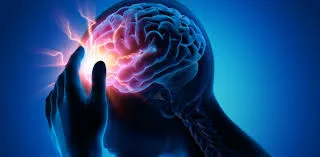Exploring Non-Medication Options for Chronic Headache Relief

Chronic headaches can disrupt daily life, making it challenging to focus, work, and enjoy simple activities. For those living with persistent headaches or migraines, the solution doesn’t always have to involve medication. Non-medication approaches can provide relief and, in many cases, improve overall quality of life. This article explores how working with a headache specialist, adopting alternative treatments, and recognizing when to seek professional care can help you manage chronic headaches effectively.
Understanding the Role of a Headache Specialist
A headache specialist is a healthcare professional trained to diagnose and manage various types of headaches, including migraines, tension headaches, and cluster headaches. Specialists become partners in the process of uncovering underlying triggers, whether they involve lifestyle factors, stress, or other health conditions. Beyond diagnosis, they work with patients to create personalized treatment plans that often combine non-medication approaches with other therapies.
Having a specialist on your side also means access to cutting-edge treatments and resources that general practitioners may not typically offer. If chronic headaches are impacting your life regularly, a visit to a headache specialist provides valuable guidance and clarity.
Non-Medication Options for Chronic Headache Relief
Chronic headaches may respond well to alternative approaches that don’t involve medication. These options focus on addressing physical, environmental, and lifestyle factors contributing to headache pain.
Stress Management Techniques
Stress often acts as a trigger for tension headaches and migraines. Incorporating stress-reduction techniques into daily life can alleviate the frequency or intensity of headaches. Practices such as meditation, yoga, mindfulness exercises, or even deep breathing routines can create moments of calm and reduce overall tension.
Physical Therapies and Exercise
Sometimes, chronic headaches are linked to muscle tension or poor posture. Physical therapy, chiropractic adjustments, or targeted exercises designed to relax the neck and shoulder muscles can help reduce pain. Regular physical activity like walking, swimming, or even stretching exercises can also improve blood flow and reduce tension in problem areas.
Dietary and Lifestyle Adjustments
Certain foods and drinks act as triggers for headaches. Working with a nutritionist to identify these triggers can lead to meaningful changes. Proper hydration, regular meals, and sufficient sleep also play critical roles in headache prevention.
Acupuncture and Massage Therapy
Alternative therapies such as acupuncture and massage have gained popularity in headache management. Acupuncture involves the strategic placement of fine needles to stimulate blood flow and energy channels in the body. Massage therapy focuses on relieving muscle tension that may contribute to pain.
Cognitive Behavioral Therapy (CBT)
CBT is a structured approach that can help individuals manage their response to chronic pain. This therapy focuses on adjusting thought patterns related to stress, anxiety, and pain. It offers tools to reduce the emotional and physical impact of headaches.
When to Seek Treatment from a Migraine Specialist
If headaches persist despite self-care efforts or grow more intense over time, it might be time to consult a migraine specialist. Some signs that suggest professional help is needed include frequent disruptions to work or daily life, overreliance on over-the-counter pain medications, or symptoms like nausea, visual disturbances, or extreme sensitivity to light and sound.
Specialists often have access to treatments such as nerve blocks, biofeedback, and advanced imaging technology for a comprehensive diagnosis. They may also recommend innovative therapies, such as Botox injections or neuromodulation devices, for patients with chronic migraines.
Finding Relief One Step at a Time
Living with chronic headaches is challenging, but there are effective ways to manage their impact. Whether it’s working with a headache specialist, exploring non-medication treatments like physical therapy and stress management, or consulting a migraine specialist for advanced therapies, relief is possible.
Take the first step by considering your symptoms, consulting with a qualified specialist, and exploring which non-medication approach resonates best with your lifestyle. A proactive, informed approach can make all the difference in reclaiming comfort and control over your daily life.





